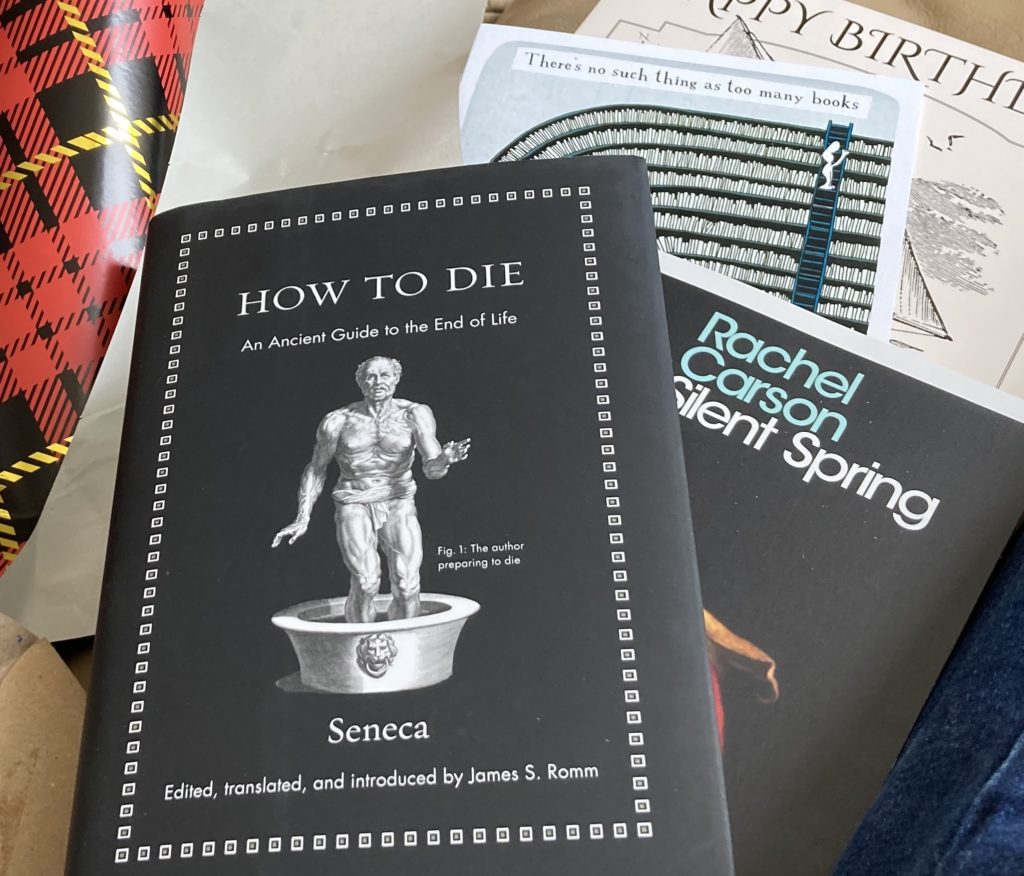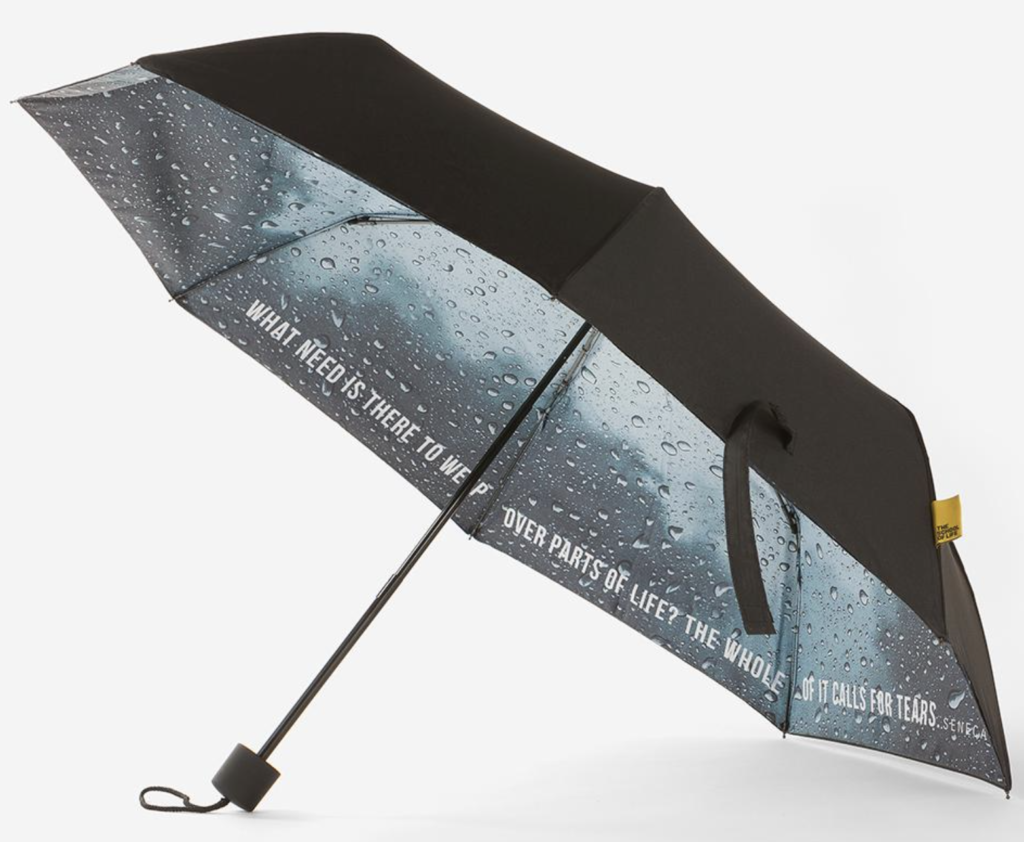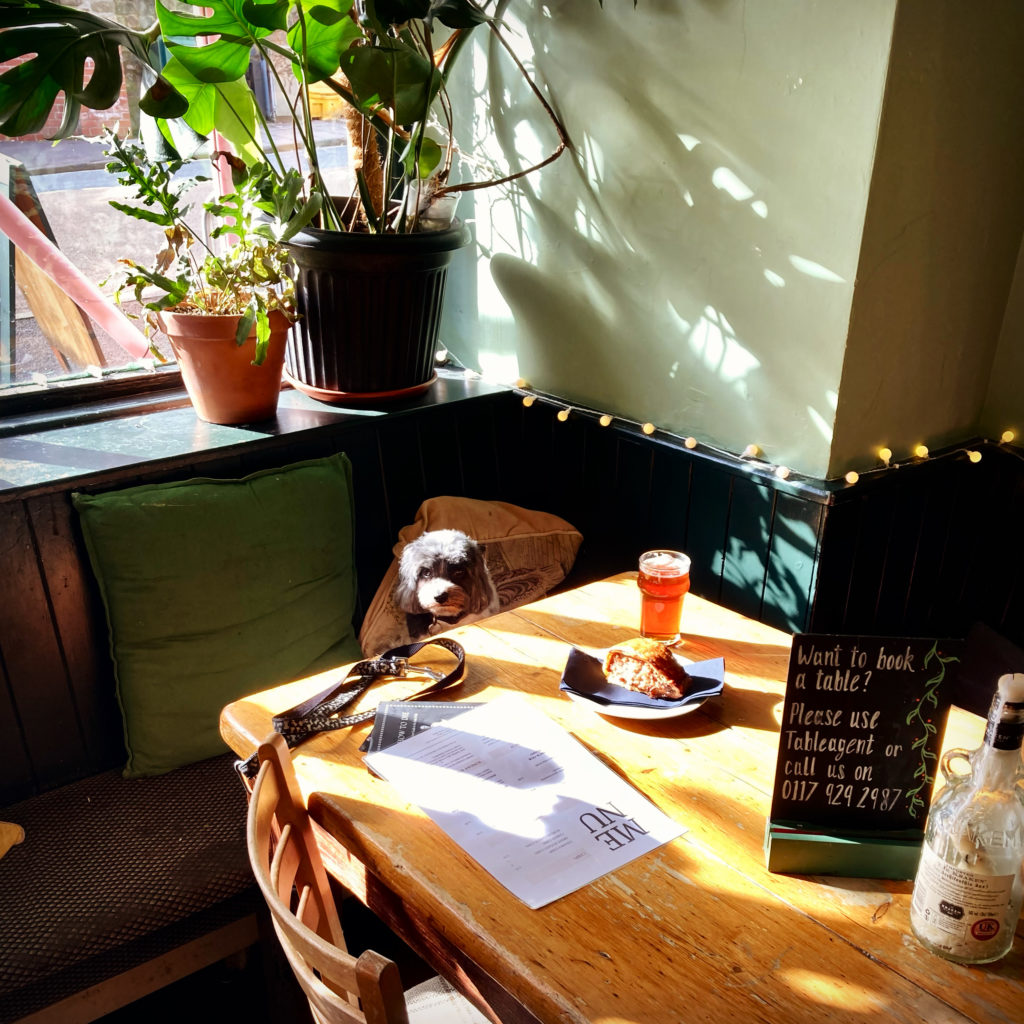How to Die
I have written before about how hard it is to buy a book for someone — so it was a treat to receive books from both my wife and my daughter for my birthday.
My daughter caught me browsing the philosophy section in Foyles and she snuck it out of me that I would like to read more Seneca. I have no idea how my wife figured out Silent Spring but it has been on my to read list for ages.

How to Die might seem a bit bleak but it has been on my mind for a while. Seneca’s message in the book is that if we’ve done a good job of living our lives, we shouldn’t be afraid of dying. Dying is just another part of life and fear of death is a distraction from living the best life we can. By preparing for our inevitable death, we make the fear go away.
“It’s a great thing to learn how to die.”
Seneca (quoting Epicurus in the first bit)
Perhaps you think it is useless to learn something that will be used only once … Those who have learned how to die have unlearned how to be slaves.
Seneca does not believe that death is something to look forward to. Oh, no. The act of dying is unpleasant and will bring sadness to those around us. But dying is inevitable and it is better to be ready for it; he uses analogies to illustrate this. Night must follow day and winter must follow summer. It would be foolish to not prepare for the winter when you know it is coming but you can still enjoy the summer while waiting for the snow. And if winter comes a little early? Well, I hope you enjoyed your summer anyway.
What difference does it make how fast you depart a place that must, without a doubt, be departed?
Seneca
Being dead is nothing to fear. Plenty of analogies here too: a favourite is an analogy with a lamp. Before the lamp is lit, it is dark. When the time comes to extinguish the lamp it will be dark again, the same as it was before. “We too are extinguished and lighted. In the time in between we have sense and experience; before and after is true peace.”
And what of those who do not experience joy in life?
Death is the undoing of all our sorrows, an end beyond which our ills cannot go; it returns to that peace in which we reposed before we were born. If someone pities the dead, let them also pity those not yet born.
Seneca
Many of Seneca’s analogies seem to channel Epicurus who lived 400 years before him.
Why should I fear death?
Epicurus
If I am, then death is not. If death is, then I am not.
Why should I fear that which can only exist when I do not?
Seneca was a Stoic and the Stoics have a reputation for being emotionless but, actually, the Stoics recommend enjoying your emotions to the full — you just shouldn’t let them rule you. Some emotions, like anger, are bad because they allow the person making you angry to control you. But if you can control your anger, you take back control and you can choose when to be angry. It’s OK to be angry or calm, happy or sad — but you should choose it for yourself.
Epicurus was not a Stoic and he has a whole ‘nother philosophy named after him. The Epicureans and the Stoics are often seen as opposed to each other but their philosophies have a lot in common. They both talk about being ready for death, for example. But where the Stoics sometimes sound a bit gloomy, the Epicureans are all about enjoying life.
We must, therefore, pursue the things that make for happiness, seeing that when happiness is present, we have everything; but when it is absent, we do everything to possess it.
Epicurus
Seneca also celebrates the good life but he can be a bit pessimistic sometimes.

If you are an optimist — I am — the Epicureans are a better choice. As with the Stoics, most people have the wrong idea about the Epicureans. When we moderns think about Epicureanism, we think of slap-up dinners and lavish parties with champagne and maybe a bit of extra-marital fondling. But Epicurus was more likely to enjoy a glass of water and some barley cake while talking philosophy with friends. I agree! And though I might substitute a pint of London Pride and a meat pie for the Epicureans’ water and cake, talking philosophy with friends is one of life’s finest pleasures.

Today is my second cancerversary and preparing for death has been valuable for me. For the last couple of years, I have assumed that I might die at any moment and I’ve organised my life around all the end-of-life administrivia like inheritance and funerals and powers of attorney and planning for life-after-me for my family. Will everyone be OK without me?
But something changed in me over the last few weeks and I no longer feel like I could die at any moment. These new thoughts have left me unsettled though because now I don’t know what to do with my life. It didn’t matter where we lived before because I thought I’d be leaving this life soon — but it matters to me now. Also, I am a bit fed up with software engineering after 34 years of it and I’d like to try something new. I can suddenly dream again. What should I do next? Where should we live? How should I spend the rest of my life? I don’t know the answers yet but I have lots to think about! I have enjoyed my life, despite its ups and downs, but I have a little more left in me, I think.
Anyway, thank you Little Clown for the gift of a book. I love my Seneca and I appreciate his advice — it came at just the right time for me.
Before I go, here’s a little passage that just popped up in my feed. I have been reading Maria Popova’s The Marginalian since before it was called that and, every day, she has a little bit of wisdom that is worth thinking about. Imagine if Wikipedia were edited by a poet and, instead of all facts all linked together, it was all dreams.
Life will break you. Nobody can protect you from that, and living alone won’t either, for solitude will also break you with its yearning. You have to love. You have to feel. It is the reason you are here on earth. You are here to risk your heart. You are here to be swallowed up. And when it happens that you are broken, or betrayed, or left, or hurt, or death brushes near, let yourself sit by an apple tree and listen to the apples falling all around you in heaps, wasting their sweetness. Tell yourself that you tasted as many as you could.
Louise Erdrich
